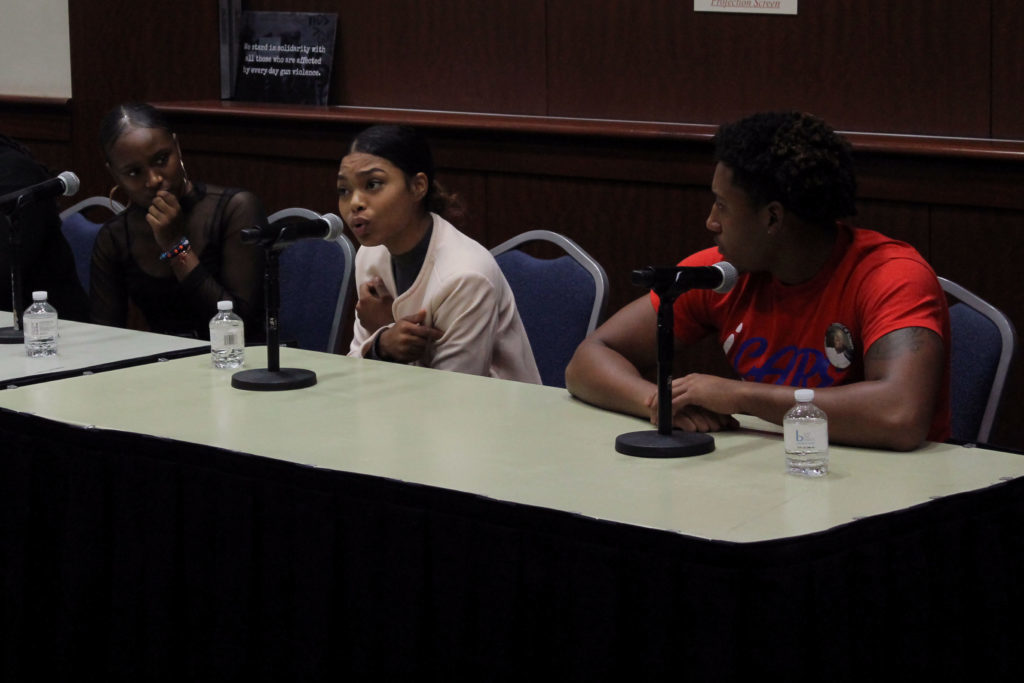Four activists of color spoke about American race relations and gun violence during a panel discussion at the Marvin Center Saturday.
The panel, hosted by March For Our Lives GW, discussed the consequences of and media attention surrounding topics like police brutality and anti-gun violence movements. Panelists at the event, which was co-sponsored by March On The Campus GW and NAACP GW, discussed their experiences with police brutality and the lack of attention inner-city violence receives.
In case you missed the event, here are some highlights:
1. The importance of activism
Omarina Cabrera, a junior and gun violence survivor from the Bronx, is the first person in her family to attend college — but her twin brother, Omarlin, is in prison for an armed robbery he says he committed to provide for his child. Cabrera said it’s important for people to talk about their personal experiences to enact change.
Cabrera said a reactive mindset is more common than a proactive mindset, but millennials have the ability to successfully push for gun reform.
“We underestimate our own power,” she said. “We can do it ourselves.”
Bria Smith, a speaker at a March for Our Lives event in Milwaukee in March, said she became an activist to give people of color a voice and shine a light on inner-city violence.
“Being able to speak for brown and black people is how you make change,” she said.
Smith said the panel discussion only mattered if the audience present continued the conversation outside of the Marvin Amphitheater’s walls.
“If this conversation stays in this room, we’re failing everybody sitting in these seats,” she said. “If it doesn’t go outside that door, we’re failing everybody who’s able to come here.”
2. Pushing back against police violence
Smith asked the audience to empathize with the families of people shot by police officers who went unpunished by the justice system.
“If a police officer is able to walk free, his victim is just erased,” she said. “It’s unfair and unconstitutional to walk free for killing a man for the color of his skin.”
Trevon Bosley, a Giffords fellow and gun violence survivor from Chicago, added that officials need to devise new law enforcement methods to prevent situations like that of Timothy Loehmann — the police officer who shot 12-year-old Tamir Rice to death — who was deemed unfit for duty in one police district but was still hired by Cleveland police.
“We need to implement different tactics to make sure these people pay for their crimes,” he said.
After one of the panel’s moderators noted that police training takes just 21 weeks, Jayla Holdip, a student at Thurgood Marshall Academy in Southeast D.C., said the brevity of the training period shows in police officers’ lack of knowledge about the civilians they protect.
“I think that is a reflection on the state of our country today,” she said. “They don’t learn about the communities they are policing.”
Holdip said people should be able to arm themselves with the same type of guns used by the police force for self-defense purposes, but the other three panelists disagreed.
“We are being murdered by these police, so why is it a bad idea to protect ourselves if police are doing it?” Holdip asked.





